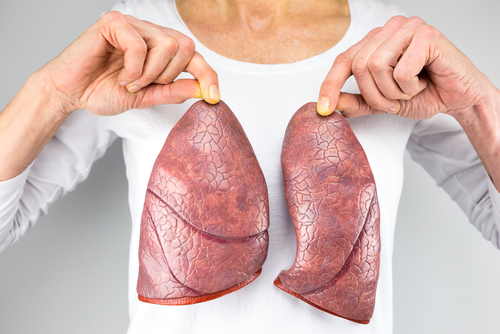Collaborators Explore New Ways to Assess Lungs’ Viability for Transplant

Canada’s SQI Diagnostics and the University Health Network (UHN) will work together to advance the development and approval of new rapid protein assays and a point-of-care (POC) diagnostic device to help surgeons assess the viability of lungs and other organs for transplant.
This could represent an important step to improve the health of donor organs so they can be transplanted into seriously ill patients with lung diseases such as pulmonary fibrosis, cystic fibrosis, pulmonary hypertension, and chronic obstructive pulmonary disease.
SQI scientists will work in collaboration with Shaf Keshavjee, MD, who heads the Toronto Lung Transplant Program at UHN and the University of Toronto.
“Integrating rapid diagnostics is a major step forward in lung transplantation,” Keshavjee said. “By providing transplant teams with quantitative metrics to more accurately assess donor lungs, we are moving decision making in transplantation into the era of personalized medicine.”
Lung transplant represents the only possible treatment option for many people with a severe lung disease. But finding suitable donor lungs can be a challenge.
The Pulmonary Fibrosis News forums are a place to connect with other patients, share tips and talk about the latest research. Check them out today!
Only about 20% of donor lungs are used, the lowest utilization rate compared to other solid organ transplants. This is mostly because of the difficulty in assessing the quality and health of the donor lung.
Currently, the decision on whether a lung is suitable is largely based on the surgeon’s assessment and qualitative clinical factors available during the organ donation process. Still, even with proper lung assessments and organ preservation methods, the real health status of an organ may not be detectable by the surgeon at the time of the transplant, which can lead to suboptimal patient outcomes.
Therefore, finding ways to enhance donor lung evaluation prior to transplant may significantly improve the chances of viability and a positive outcome.
SQI will work with UHN to develop a rapid test to assess multiple proteins at the same time, as well as a POC device. These new diagnostic methods will be designed based on predictive biomarkers developed at UHN to more accurately and quantitatively evaluate the suitability of a lung for transplant.
“This agreement represents a reputational landmark for SQI, given the pioneering and global leadership role of Toronto and UHN in the growing field of lung transplantation,” said Andrew Morris, CEO of SQI Diagnostics. “SQI’s multi-array testing is proving to be applicable in areas well beyond drug development and disease identification.”







